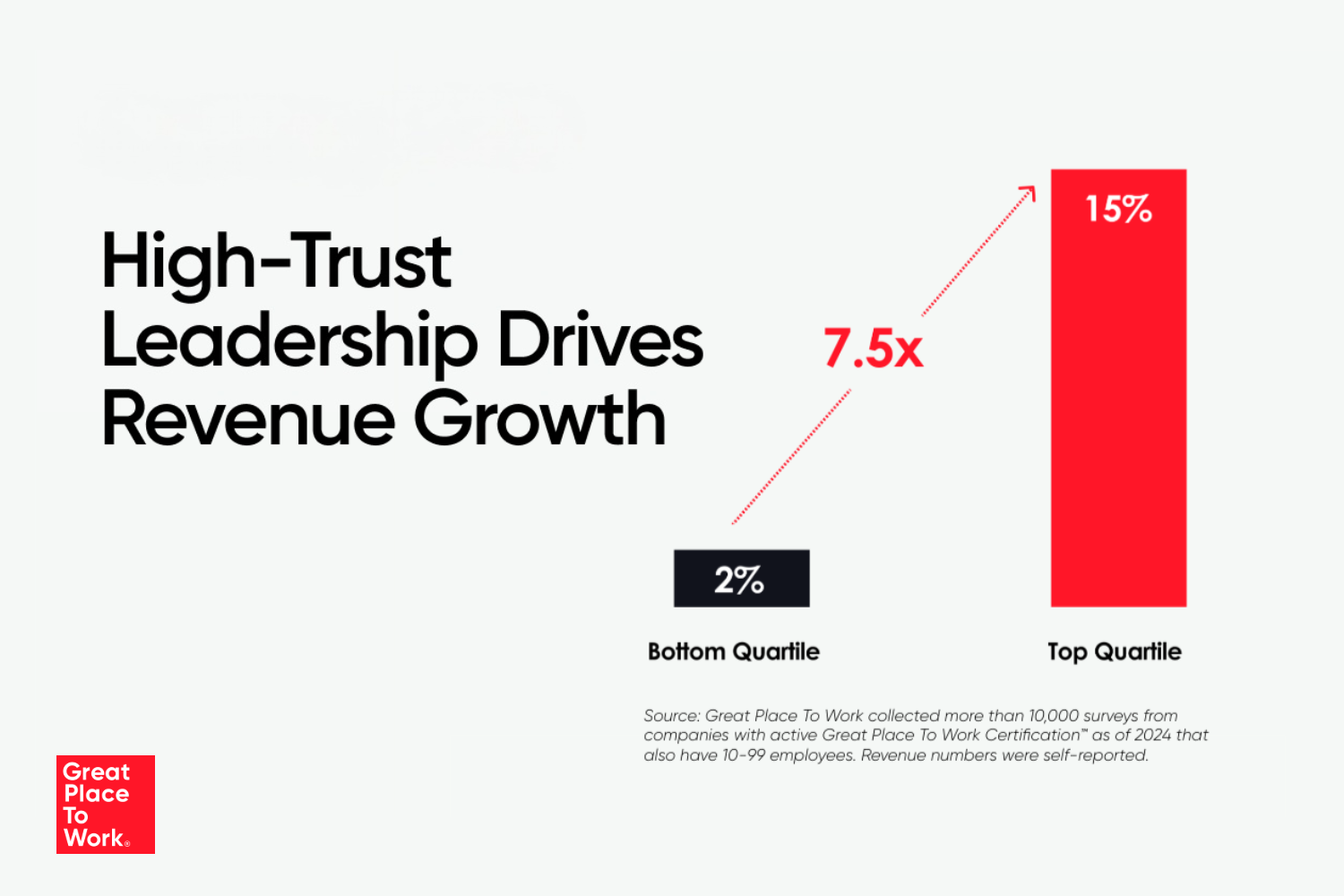Developing Leaders, High-trust leadership, Listening
Julie Zhuo, author of “The Making of a Manager,” shares tactics that new managers should consider to build trust in the AI era.
Fewer people want to take on leadership roles these days.
Korn Ferry found that 72% of Gen Z employees said they would rather be individual contributors than middle managers, a trend called “conscious unbossing.” More than two-thirds (69%) of U.S. employees said they would leave their job over poor management in a LinkedIn study. Yet only 30% were interested in becoming managers themselves.
That’s a problem for companies, because leaders play a crucial role in driving high-performing culture that produces the best business results.
Why being a leader is getting harder
“We are in a very, very dynamic time and it challenges everything that we used to do,” says Julie Zhuo, author of “The Making of a Manager,” which is being re-released this fall. OpenAI’s Sam Altman praises her book as giving new managers “the tool they need to help their people and company win.”
Zhuo knows a thing or two about leadership. As an early employee at Facebook (now Meta) and founder of her own company, Sundial, she mines her career for lessons about becoming a leader in the fast-paced tech boom, and how those leadership lessons are changing in the AI era.
“We've seen, especially in the tech industry, a contraction, there's recessions, there's layoffs,” Zhuo says.
The pace of change is a heavy burden for leaders. “It challenges our processes; it challenges our pace … Nothing that we might've done in the past can be a great predictor of where the future might be.”
Skills for leaders in 2025
What are the most important skills for leaders right now?
Listening is at the top of the list, and it’s the skill that unlocks your ability to act as a coach or mentor, Zhuo says.
“If you go in there and you say, ‘I already know everything’ and ‘here's what you should do,’ — that’s not a really great way to earn trust,” she explains. “Probably you're going to be wrong because you're not going to be nearly as deep of a subject matter expert on a lot of the details as the people on your team.”
Instead, the best leaders are master learners (another trait unlocked by better listening habits.)
“The mental model that leaders who want to become better coaches have to understand is that a lot of downstream decisions and how impactful your decisions are going to be will come from how well do you understand what great looks like,” Zhuo says.
The other skill every leader needs? “Honesty,” Zhuo says.
“What I mean by honesty is being able to have a conversation with the other person where you can put your own concerns, vulnerabilities, and worries on the table with them,” she adds.
This is particularly important as leaders have less and less time to build trust with their colleagues and direct reports.
“We don't see as long of tenures at companies as we used to — certainly if compared to three or four decades ago,” Zhuo says. “We don't have as much time to figure out how to build that base of trust from just years or months or many projects working together.”
Coaching people for AI opportunities
Zhuo’s book has plenty of advice for people trying to navigate current job market. Her experience among founders in Silicon Valley (OpenAI’s Sam Altman praises her book as giving new managers “the tool they need to help their people and company win”) gives her a front-row seat to the transformation promised by AI for every workplace.
“Each individual can in some ways become more of a ‘super’ individual contributor,” she predicts. The result is a blurring of roles.
“In the past, it might be if I have a team, I'm assembling Avengers,” Zhuo says. “I need two engineers, I need one product manager, I need a designer, I need a marketer, a salesperson … it may not look like that in the future.”
With AI, there will be fewer people on a team, and each team member will play multiple of the roles now found on teams today. “We might see that these specific definitions or career ladders get rewritten,” Zhuo predicts for the overall job market.
And that’s a good thing for new grads, even though they might be feeling the pinch right now.
“For young people today who people who are just coming out of college, it's both a very scary time because for them, a lot of companies are not hiring or they don't have roles for younger people — but I also think you can look at it as an opportunity,” she says.
“I see many young people going out and just building. They're solving problems. They're maybe creating their own companies, and even if it's not their own companies, they're taking problems that they find interesting and using AI to create something.”
The entrepreneurial spirit and ability to solve problems will always have a place in the organization, she says.
Where managers should focus
For anyone new to a management role or looking to brush up on their management skills, Zhuo has one big piece of advice: Heal thyself.
“If we're really uncertain, we're really stressed out, we're burnt out, we don't really know where things are going … it's difficult to be a good listener, or be transparent with people,” Zhuo says.
That’s why your best management hack for 2025 might be self-care. “How am I doing? What will help me? Am I getting enough sleep? Am I getting enough exercise?”
Save the difficult conversations for when you have the time to reset, Zhuo says. Leadership is hard, and you should give yourself the best chance you can to succeed.
Turn culture insights into business wins
Let the Trust Index™ Survey reveal your workplace’s hidden strengths and areas for growth. Start transforming today.











